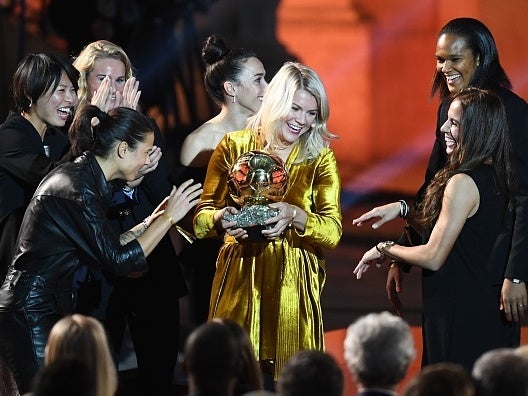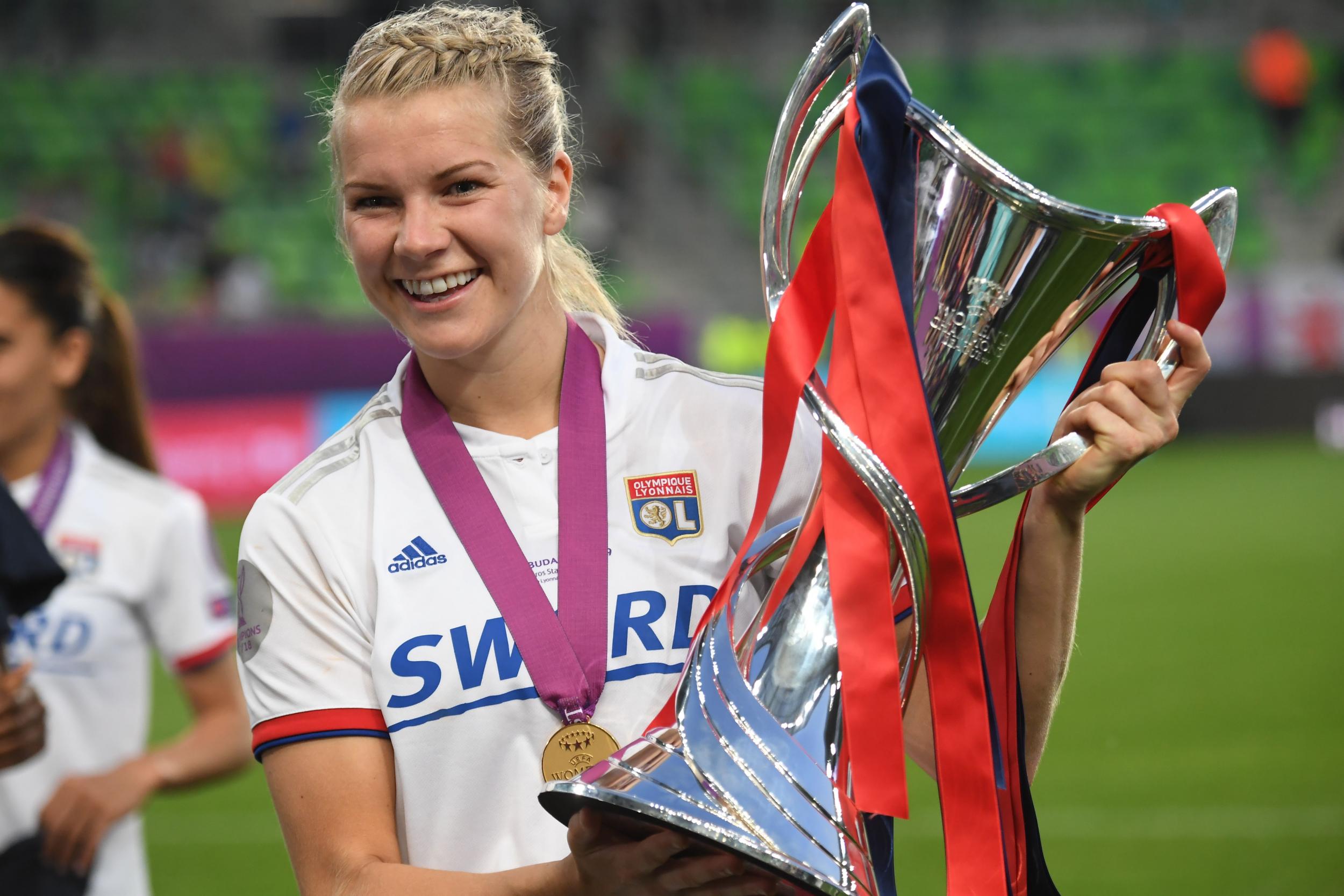Women’s World Cup 2019: Why Ada Hegerberg’s absence can have a lasting influence on modern sport
The 2019 Ballon d'Or winner will not line up for Norway

Your support helps us to tell the story
From reproductive rights to climate change to Big Tech, The Independent is on the ground when the story is developing. Whether it's investigating the financials of Elon Musk's pro-Trump PAC or producing our latest documentary, 'The A Word', which shines a light on the American women fighting for reproductive rights, we know how important it is to parse out the facts from the messaging.
At such a critical moment in US history, we need reporters on the ground. Your donation allows us to keep sending journalists to speak to both sides of the story.
The Independent is trusted by Americans across the entire political spectrum. And unlike many other quality news outlets, we choose not to lock Americans out of our reporting and analysis with paywalls. We believe quality journalism should be available to everyone, paid for by those who can afford it.
Your support makes all the difference.She is a four-time winner of the Women’s Champions League. She has scored 259 goals in 253 career games at club level. She is the recipient of the inaugural Ballon d’Or Femenin. And yet those whose interest in women’s football has only recently been piqued may be surprised to learn that the best player in the world will take no part in this World Cup.
Ada Hegerberg will not line up for Norway when they play their opening game against Nigeria in Reims tonight. Hegerberg has not represented her country of birth for the past two years, stepping away from international football after a disastrous group stage exit at the 2017 European Championship in the Netherlands.
Norway went home after three games, three defeats and no goals scored. For former world, European and Olympic champions, it was an embarrassment. But one of the few certainties about Hegerberg’s withdrawal from the international scene is that it had very little to do with the poor showing in Holland. Her reasoning went deeper.
Hegerberg’s problem is with the Norwegian Football Federation (NFF). And though she has never offered chapter and verse on why she put her international career on hold indefinitely, her complaint is essentially that the NFF is unambitious, amateurish and unable to create an environment that is conducive to the success of its women’s team.
Her misgivings stretch from an inability to express herself within the national set-up to the fundamental structure and funding of women’s football in Norway. Hegerberg’s most damning comment came shortly after announcing her decision to step away. “I always feel that I have been a worse player when I have gone home from the [national team] selection and it should not be so.”
Her experience at club level with the all-conquering Olympique Lyonnais, champions of Europe in each of the last four years, has undoubtedly had an influence. In an interview given in February but published only this week in the Norwegian newspaper Morgenbladet, Hegerberg told of how she had been “broken mentally” by international football. “I had nightmares after being with the national team, you shouldn’t have things like that.”
There are two sides to every story, of course, as the Morgenbaldet’s headline to their Hegerberg interview suggests. “Egotist”, it reads, in quotation marks. Hegerberg has been characterised as a difficult and demanding personality by her critics. It is perhaps an easy accusation to level at a player of her quality, especially one who is not afraid to be outspoken.
But there is a genuine question of whether she would be welcomed back into the fold. Her former team-mates are understandably tired of answering questions about her. When it emerged last year that Hegerberg had unfollowed many of them on social media, midfielder Guro Reiten’s reaction was telling. “We are a bit tired of this case because it will always steal some energy from our group,” she said.

The NFF, meanwhile, may counter Hegerberg’s complaints by pointing the near-perfect qualification campaign which has earned them a place in France, with seven wins from eight games in a difficult group. This year, the NFF’s budget for women’s football is higher than the men’s. And a few months after Hegerberg’s effective retirement, Norway made history by becoming the first national set-up in world football to pay their male and female players equally.
But Hegerberg’s protest was not merely about pay. It was about the perception of the women’s game and the belief that she and her team-mates should be able to meet the highest professional standards. Her absence may distract from Norway’s efforts at this World Cup but if she were merely an attention-seeker, she would have set aside her principles to display her talents on the greatest stage.

Instead, Hegerberg has sacrificed that opportunity and taken a bold stance. "It's not about me. It's never been about me," she said recently, after being named the BBC Women's Footballer of the Year. "It's about getting the change for our sport."
Her absence will be felt at this World Cup, but it may also have a lasting influence on World Cups to come.
Join our commenting forum
Join thought-provoking conversations, follow other Independent readers and see their replies
Comments